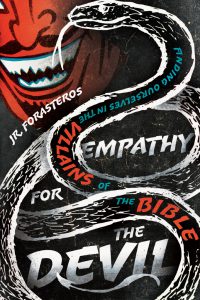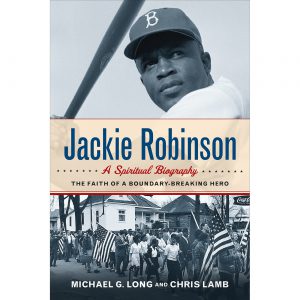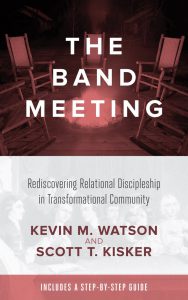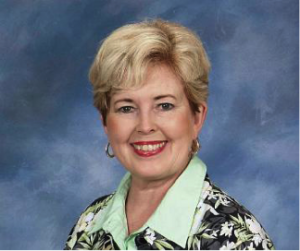
by Steve | Nov 28, 2017 | Magazine, Magazine Articles, Nov-Dec 2017

By Scott McDermott-
How is your prayer life? Really? I am not referring to how much you pray, or even how long you pray. For all too many of us that seems to be where our minds go when we are asked such a question. So, let me phrase it another way. Do you find your prayer life compelling? Are you drawn to it each day because of the life it brings to you? You see, God never intended our commitment to prayer to be driven by obligation. God intended our commitment to prayer to be driven by something deeper and something richer.
I spent a number of years praying from the place of obligation rather than that richer, more meaningful place. And yes, I was faithful to it. I seldom, if ever, missed my daily prayer time. I even prayed for a couple of hours each day. Now, that’s commitment! If anyone ever asked me if my devotional time was intact, I could answer with a resounding, “Yes!” There was just one thing wrong. My prayer wasn’t compelling and it wasn’t life-giving. But one day that began to change. How? Well that answer is found in the response Jesus gave his disciples when they asked him, “Lord, teach us to pray” (Luke 11:1).
While Jesus’ disciples were undoubtedly looking for a model prayer much like John the Baptist had provided his disciples,
Jesus provided so much more. Sometimes one word can make all the difference in a conversation and that is certainly the case here. From the very first word of his instruction, Jesus interjects an important thought that forever changes how we typically think of prayer. What is that word? “Father.” In other words, prayer is about relationship.
Recognizing that prayer was about relationship opened up a whole new world for me. When prayer is about relationship, then prayer is not just about what I say to God, it is also about what God says to me. Day after day I had gone to God with my list in hand carrying my heavy burdens, asking God to move on my behalf, but not once did I ever pause to listen for a response about my request. That one word made all the difference.
It’s been over 30 years since I made this significant change in my prayer time. Each day I go to my prayer time just as I had done so faithfully years before, but now I begin my time in prayer by focusing on his presence and not problems. As I enter God’s presence each day, I usually begin by saying: “God it’s me. I have just come to be with you.” And I pause. Some days the pause is longer than others, but it doesn’t matter. I am setting my heart on the pursuit of the face of God. Time after time God’s presence never fails to show up in the stillness. It was there that I learned an important lesson about prayer. If prayer is about relationship, then prayer is also about presence. From that place of presence, God began to speak to me gently and powerfully. My prayer life has been transformed. Prayer has become life giving. Prayer is never about how long you pray, it’s about touching God’s presence every day.
So what does that mean for how I pray? Well, over the years I have developed a simple guide to help me practice God’s presence when I pray. I call it, “Fill your Prayer with Praise.” Each letter of Praise stands for something I want to remember when I pray. Praise, Repent, Ask, Intercede, Silence, Expect. Some days I make it through all six categories. Other days I just make it through one. It doesn’t matter. I just allow God’s presence to guide me.
Praise: I usually have a journal in hand during my prayer time (for me it is now all electronic). As I begin my time of prayer, I start by recording three ways I have seen God’s hand at work in my life the day before. I look for the moments I have sensed his presence or experienced his encouragement. I will make note of how God has used me the day before or how I have seen his presence at work in others. I cannot tell you how much I have gained from this. It has proven to be quite an encouragement to have my own written log of God’s faithfulness. If there is one important lesson I have learned from this, it is that God is with me no matter what, and I have proven it. We all have those difficult seasons in our lives, an illness, heartbreak, a sorrow, an unexpected tragedy. But I discovered that even in my darkest days I found his presence at work.
Repent: Here, I ask God to examine my life and to speak to me about the things he wants to change within me. I sometimes pray: “Lord show me where my heart is today?” I pause and listen. Sometimes there are people I need to forgive. Other times God makes me aware of my need for forgiveness. Yes it is convicting, but it is also healing and refreshing. At other times God uses this time simply to speak into the areas of my life he still wants to change. Despite what God does in this time, forgiveness, rebuke, or instruction, I am frequently reminded of God’s holiness and my call to live a holy life before him.
Ask: At this point I spend time praying over my life. God taught me a prayer to pray that he never fails to answer: “God show me how to pray for myself today.” I received so much from that little prayer. When I ask that of my Father, I just pause and wait. I can hardly believe the things that come to my mind in response to that prayer.

Intercede: This is where I pray for others. Here I pray for family, friends, coworkers, and the church God has given me to pastor. I sometimes write down some ongoing concerns so I don’t forget them, but mostly I just ask God to guide me in my prayer. But I pray for others just as I pray for myself. “Lord, show me how to pray for my wife today.” “Lord, show me how to pray for family today.” “Lord show me how to pray over my church today.” Once again, God my Father helps me as I pray.
Silence: As you see, I have already filled much of my prayer time with listening anyway. But at this point, I allow stillness tobe my place of prayer. What happens there? Well that is just it. You never know. There are days when it is just soaking in God’s presence. There aren’t any great visions or revelations. Some days I can’t say I even hear God’s still small voice. But it is okay. I am just here “to be with God.” This moment has become one of my favorite moments in my daily prayer. It is as if everything within me, my successes and my failures, my joys and my sorrows must all pause and bow before the King of Kings. And yes there are times when God clearly speaks to me. When He does, I write down what I am discerning.
Expect: I close my prayer time expecting that God will respond. This becomes my launching out point for my day. How will God answer my prayers? Where will I encounter him?
Scott McDermott is the Lead Pastor at The Crossing in Washington Crossing, Pennsylvania. www.drscottmcdermott.com.

by Steve | Nov 28, 2017 | Magazine, Magazine Articles, Nov-Dec 2017

John Wesley: An Album of Portraits and Engravings collected by Kenneth Cain Kinghorn. A deeply valued friend of Good News, Kinghorn is the recently deceased professor of history from Asbury Theological Seminary. Like Kinghorn’s other books, this will be of lasting value to all Christians, especially the innumerable heirs to Wesley’s theology and ministry. This book is the definitive collection of his portraits and engravings.

Empathy for the Devil: Finding Ourselves in the Villains of the Bible by JR Forasteros (IVP). Finally, someone has creatively profiled notorious Bible bad guys (and girls) such as Cain, Delilah, Jezebel, Herod the Great, Herodias, Judas, and Satan. Go ahead and ask the big question: Why does evil exist? But then follow that up with the more important question: Why does evil exist in me?
 Bob Dylan: A Spiritual Life by Scott M. Marshall (WND Books). Marshall has marvelously drawn a bead on the enigmatic artistic and spiritual journey, most recently the winner of 2016 Nobel Prize in literature. This volume is faithful to the task in honestly tracking Dylan’s pursuit of redemption. Also, keep your eye out for Trouble No More – The Bootleg Series Vol. 13/ 1979-1981, an exploration of Dylan’s “gospel years” and the three resulting albums: Slow Train Coming, Saved, and Shot of Love.
Bob Dylan: A Spiritual Life by Scott M. Marshall (WND Books). Marshall has marvelously drawn a bead on the enigmatic artistic and spiritual journey, most recently the winner of 2016 Nobel Prize in literature. This volume is faithful to the task in honestly tracking Dylan’s pursuit of redemption. Also, keep your eye out for Trouble No More – The Bootleg Series Vol. 13/ 1979-1981, an exploration of Dylan’s “gospel years” and the three resulting albums: Slow Train Coming, Saved, and Shot of Love.

Seven Women: And the Secret of their Greatness by Eric Metaxas (Thomas Nelson). Metaxas profiles seven fascinating women who shaped the course of history through their faith and character. Everyone can benefit from learning about the lives of Joan of Arc, Susanna Wesley, Hannah More, Sister Maria of Paris, Corrie ten Boom, Rosa Parks, and Mother Teresa. All of these remarkable women followed God’s call upon their lives and made a profound difference with their discipleship.
 Jackie Robinson: A Spiritual Biography. The Faith of a Boundary Breaking Hero by Michael G. Long and Chris Lamb (WJK Press). The rock-solid faith of Jackie Robinson, a Methodist, was tested and challenged at every facet of his remarkable life as a beloved and tormented athlete who shattered racial barriers in major league baseball.
Jackie Robinson: A Spiritual Biography. The Faith of a Boundary Breaking Hero by Michael G. Long and Chris Lamb (WJK Press). The rock-solid faith of Jackie Robinson, a Methodist, was tested and challenged at every facet of his remarkable life as a beloved and tormented athlete who shattered racial barriers in major league baseball.

The Band Meeting: Rediscovering Relational Discipleship Through Transformational Community by Kevin M. Watson and Scott T. Kisker (Seedbed). If your church is needing to rethink your small group approach with an eye toward tapping into the richness of the early Methodist tradition of spiritual formation, Watson and Kisker have provided a perfect blueprint. This volume helps lay and clergy alike to understand John Wesley’s approach to discipleship.

by Steve | Nov 28, 2017 | Magazine, Magazine Articles, Nov-Dec 2017

Jim Ramsey
By Jim M. Ramsay-
The nation of Liberia has had its share of challenges in recent decades. The brutal civil war led by Charles Taylor and his subsequent rule dominated the 1990s until he was removed in 2003. More than 300,000 Liberians lost their lives during those years. The nation was still trying to rebuild when it again was in the headlines in 2014 in the wake of the Ebola outbreak. Ebola claimed the lives of nearly 5,000 people and devastated the country and its social institutions.
One of those affected by the Ebola outbreak was the family of the Rev. Isaac Wheigar. Isaac and his wife, Precious, had four living children. A son had been lost to sickle cell anemia as a baby before the condition had been identified in the family. Two others of their children were also diagnosed with the condition, which can be managed with medical care. In August 2014 their eldest son, Ike, experienced an episode that required hospital care, but the hospitals were closed due to Ebola and Ike tragically passed away at only 17 years old before he could receive treatment that normally would have been readily available. Even as Isaac and Precious grieved Ike’s death, they were deeply concerned for their eight-year old daughter, Yeato, who also had the sickle cell condition.
Having served 10 years as superintendent of the Wesleyan Church in Liberia, in 2012 Isaac was selected to be general secretary of the Association of Evangelicals of Liberia. In this role, his team had developed a vision entitled EXPO Liberia 2020 to plant 10,000 churches by the year 2020. The vision invited all church traditions to join the effort through church multiplication. But then came Ebola and their personal loss and the vision had to be set aside.
Through a miraculous series of divine appointments with people who were in Liberia to assist during the Ebola crisis, the Wheigars were invited to come to the United States for Yeato to receive treatment at the Emory Medical Center. While in Atlanta, Isaac and Precious were introduced to the staff of TMS Global where Isaac now serves as a consultant on African partnerships. Isaac’s work in leading an indigenous church association and developing a national church planting movement have made him an expert in addressing issues of unhealthy dependency and sustainability in church growth.
After two years of getting his family stabilized in the Atlanta area, Isaac’s and Precious’s gaze is again on Liberia. While he is grateful for the care Yeato receives at Emory, he is eager to re-engage the vision for church planting and development in Liberia, now needed more than ever. He has put together a roadmap for moving forward. The effort will begin in Liberia, but move across borders into Ivory Coast, Sierra Leone, and Guinea. This area, also known as the Mano River region, includes many areas that have had limited access to the gospel. The vision is to do church planting through church multiplication.
Working with Isaac is consistent with TMS Global’s desire to work alongside capable, indigenous leaders. We believe that this is a kairos opportunity to impact an area where there is great need and great opportunity for kingdom engagement. It is an opportunity for churches in the United States through prayer, support, and onsite visits to be part of a vision that is locally developed, well-led and long-lasting, and which will impact the region deeply spiritually, socially, and physically.
In 2006, The New York Times ran an article entitled “A Master Plan Drawn in Blood.” The article described the brutal plan of Charles Taylor that began with a small band of guerilla fighters who, using terror, recruited increasing numbers toward his vision to destabilize and brutalize the entire Mano River region. Isaac said, “Here is a man serving evil using the blood of men. He succeeded for a time. What if we drew up a plan to reverse this evil vision, still drawn in blood, but drawn using the blood of the Lamb? We will recruit people to build families instead of destroying them, to educate children instead of their being child soldiers, to use the blood of the Lamb to reverse the kingdom of darkness.”
Jim Ramsay is the vice president for global engagement at TMS Global. To learn more about Isaac’s vision, Jim can be reached at jramsay@tms-global.org

by Steve | Nov 28, 2017 | Magazine, Magazine Articles, Nov-Dec 2017
 By B.J. Funk-
By B.J. Funk-
God came to earth wrapped in an ordinary package. His birthing room had a dirt floor, his crib contained remnants of dried animal feed, and instead of “Lullaby” being played over a hospital loud speaker at the birth of a child, there was a mixed chorus of animals braying loudly, possibly over the intrusion of this couple and their baby.
Here is a simple illustration of how that happened. In that land called heaven, the Son, Jesus, stood up one day, gave the Father and the Spirit a good-bye hug, and made a bold, gigantic decision, all in obedience to the Father. The Son stepped off the glittering streets, outside of the abundance of rainbow colors that dripped wonderful smells of beauty, and became a tiny seed inside the womb of a young woman. The seed grew into a baby who later moved into the sin, dirt, and humanity of earth. Upon first opening his eyes in his new home, he saw darkness. He took his first breath and smelled stench. He opened his ears and heard animals screeching.
And while human life would become painfully ugly and hurtful on earth, the Son brought with him a manual of instructions handed to him by his Father, a manual that contained many promises. Best of all was the promise that his relationship with God and the Spirit would be unbroken. He clung to that knowledge and counted on this relationship to remain secure. This would be the only way that he would have strength to keep going, even when His physical body knew complete exhaustion, rejection, and eventually murder.
On an ordinary night in an ordinary town in an ordinary and rough cave used for a stable, surrounded by ordinary animals, and two very ordinary parents, God became man. As Eugene Peterson writes in The Message, he “moved into our neighborhood.”
Before the shepherds were given this celestial message by the angels, those shepherds stood on a hillside, dressed in quite ordinary clothes, and would now be sent to find a baby that was anything but ordinary.
At first there was a huge orchestra of voices appearing in the heavens exclaiming in rich voices some very unordinary news. No wonder the shepherds were afraid. Shepherds were poor and uneducated, and because they lived among the sheep, they carried an odor everywhere they went. For that reason, they were not allowed in the Temples. They weren’t allowed in the synagogues. But they would be allowed at the birth of Jesus. This astounding fact gives me a deeper look into the God I serve: He is most comfortable around the ordinary, and that should make the ordinary comfortable around Him.
Jesus rarely comes where we expect. He appears where we least expect Him, and in the most illogical situations. On this very ordinary day, God sent a message to ordinary people like you and me. His message was and is, “I love the ordinary. No matter what your sins or transgressions in 2017 or before, I love you and I forgive you. I reach out especially to the poor, the hurting, the lonely, the unsuccessful, and I say, ‘Come unto me all ye who are burdened and heavy laden. I came to bring you peace.’”
Today, because of God’s extraordinary reach to ordinary people, you and I are caught up in the wonder of seeing royalty wrapped in ordinary humanity, lying in a manger and sending this intimate message to you: “I came for the ordinary. I died for the ordinary. Never let anyone make you feel that you are not worthy of my love.”
To make this story even better, Jesus came to set us free from our own wounded natures, promising to help us overcome earth’s descending pull. He even desires a relationship with us, will sprinkle his love all over us, and will promise to stay by our side as we seek holiness above the ordinary. What a beautiful story, made real by the fact that millions of followers testify to their changed lives!
Thanks be to God. Because of Jesus, ordinary people like us will forever be wrapped in royalty.






 Bob Dylan: A Spiritual Life by Scott M. Marshall (WND Books). Marshall has marvelously drawn a bead on the enigmatic artistic and spiritual journey, most recently the winner of 2016 Nobel Prize in literature. This volume is faithful to the task in honestly tracking Dylan’s pursuit of redemption. Also, keep your eye out for Trouble No More – The Bootleg Series Vol. 13/ 1979-1981, an exploration of Dylan’s “gospel years” and the three resulting albums: Slow Train Coming, Saved, and Shot of Love.
Bob Dylan: A Spiritual Life by Scott M. Marshall (WND Books). Marshall has marvelously drawn a bead on the enigmatic artistic and spiritual journey, most recently the winner of 2016 Nobel Prize in literature. This volume is faithful to the task in honestly tracking Dylan’s pursuit of redemption. Also, keep your eye out for Trouble No More – The Bootleg Series Vol. 13/ 1979-1981, an exploration of Dylan’s “gospel years” and the three resulting albums: Slow Train Coming, Saved, and Shot of Love.
 Jackie Robinson: A Spiritual Biography. The Faith of a Boundary Breaking Hero by Michael G. Long and Chris Lamb (WJK Press). The rock-solid faith of Jackie Robinson, a Methodist, was tested and challenged at every facet of his remarkable life as a beloved and tormented athlete who shattered racial barriers in major league baseball.
Jackie Robinson: A Spiritual Biography. The Faith of a Boundary Breaking Hero by Michael G. Long and Chris Lamb (WJK Press). The rock-solid faith of Jackie Robinson, a Methodist, was tested and challenged at every facet of his remarkable life as a beloved and tormented athlete who shattered racial barriers in major league baseball. 

 By B.J. Funk-
By B.J. Funk-